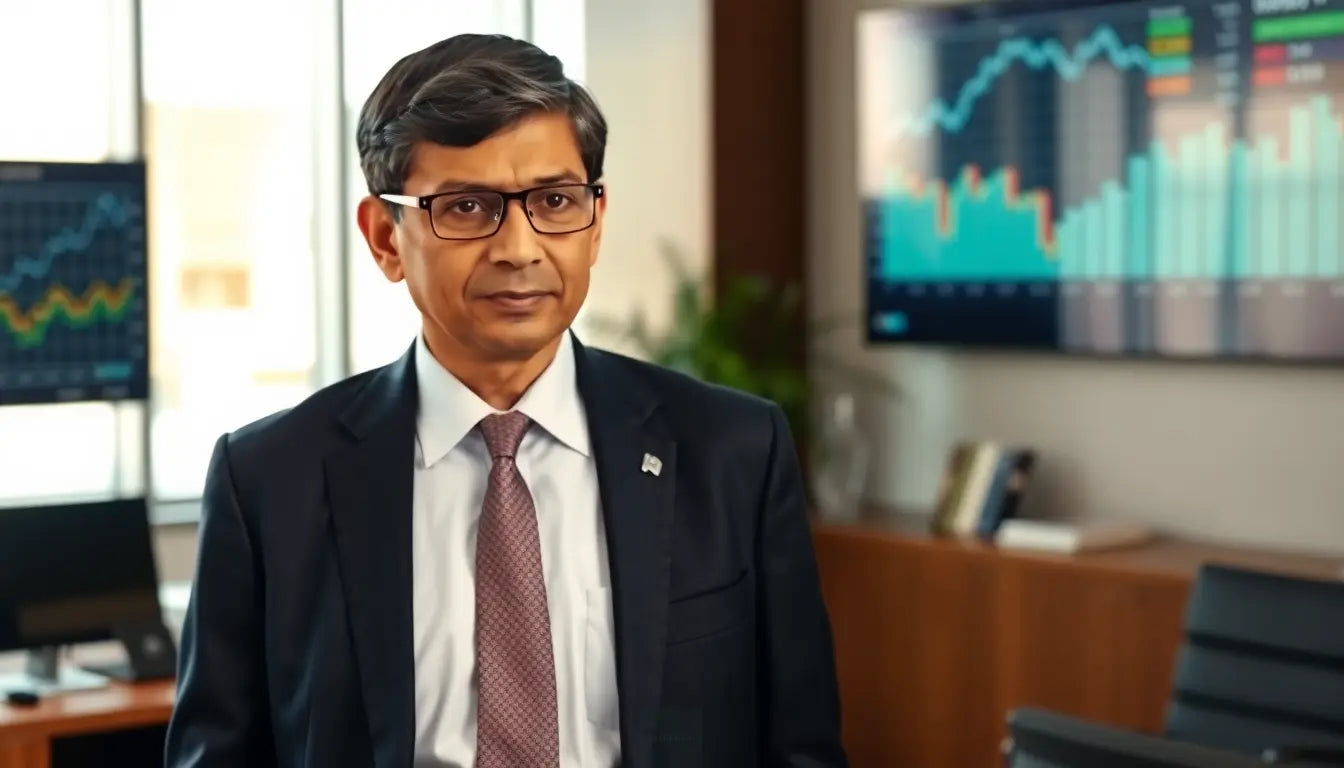
Raghuram Rajan: The Visionary Economist Shaping India's Financial Future
In the ever-evolving landscape of global economics, few individuals have left an indelible mark like Raghuram Rajan. As the former Governor of the Reserve Bank of India (RBI), Rajan's tenure was marked by a relentless pursuit of financial stability, economic growth, and the empowerment of the common citizen. His visionary approach and unwavering commitment to reform have cemented his place as one of the most influential economists of our time.
The Rise of a Trailblazer
Raghuram Rajan's journey to the pinnacle of India's financial sector was one of exceptional talent and unwavering determination. Born in 1963 in Bhopal, India, Rajan's early years were shaped by a family that valued education and public service. After completing his undergraduate studies at the Indian Institute of Technology (IIT) Delhi, Rajan went on to earn a doctorate in economics from the Massachusetts Institute of Technology (MIT), where he honed his analytical skills and developed a deep understanding of global financial systems.
Shaping the Global Discourse
Rajan's academic prowess and visionary thinking soon caught the attention of the international community. In 2003, he was appointed as the Chief Economist and Director of Research at the International Monetary Fund (IMF), a role that allowed him to shape the global discourse on economic policy and financial stability. During his tenure, Rajan's prescient warnings about the impending global financial crisis of 2008 earned him widespread acclaim and cemented his reputation as a trailblazer in the field of economics.
Transforming the Indian Economy
Rajan's return to India in 2013 as the Governor of the Reserve Bank of India marked a pivotal moment in the country's economic history. Tasked with navigating the challenges of a slowing economy, high inflation, and a weakening currency, Rajan set out to implement a comprehensive reform agenda that would address the root causes of India's economic woes.
Restoring Stability and Confidence
One of Rajan's first priorities was to restore stability and confidence in the Indian financial system. He introduced a series of measures aimed at strengthening the banking sector, including the implementation of stringent non-performing asset (NPA) recognition norms and the creation of a specialized asset reconstruction company to address the issue of bad loans. These bold actions, coupled with his unwavering commitment to transparency and accountability, helped to rebuild trust in the Indian banking system and paved the way for sustainable economic growth.
Fostering Financial Inclusion
Rajan's vision for the Indian economy extended beyond the confines of the financial sector. He recognized the importance of financial inclusion as a key driver of economic development and social empowerment. Under his leadership, the RBI launched the Pradhan Mantri Jan Dhan Yojana, a landmark initiative that aimed to provide universal access to banking services and empower the unbanked population. This program, coupled with the expansion of digital payment infrastructure and the promotion of financial literacy, has been instrumental in bringing millions of Indians into the formal financial system.
Navigating Challenges and Controversies
Rajan's tenure as the RBI Governor was not without its challenges and controversies. His outspoken nature and willingness to challenge the status quo often put him at odds with the political establishment, leading to occasional tensions and public debates. However, Rajan remained steadfast in his commitment to his principles, never shying away from voicing his concerns or advocating for policies that he believed were in the best interest of the Indian economy and its people.
The Demonetization Debate
One of the most notable controversies during Rajan's tenure was the government's decision to demonetize high-value currency notes in 2016. While the move was intended to curb the black economy and promote digital payments, Rajan's cautious approach and concerns about the potential disruptions to the economy were widely reported. His insistence on a well-planned and gradual implementation of the policy, as well as his emphasis on the need for robust cash management systems, highlighted his pragmatic and evidence-based approach to policymaking.
The Legacy of Raghuram Rajan
As Raghuram Rajan's tenure as the RBI Governor came to an end in 2016, he left behind a remarkable legacy that continues to shape the trajectory of the Indian economy. His unwavering commitment to financial stability, his focus on fostering financial inclusion, and his willingness to challenge the status quo have cemented his place as one of the most influential economists of our time.
Inspiring a New Generation of Policymakers
Rajan's impact extends beyond the confines of the RBI. His intellectual contributions and his ability to navigate complex economic challenges have inspired a new generation of policymakers and economists, who are now at the forefront of shaping India's economic future. His writings, lectures, and public engagements have become essential reading for those seeking to understand the intricacies of global finance and the unique challenges faced by emerging economies.
Continuing the Pursuit of Economic Reforms
Even after his tenure as the RBI Governor, Rajan has remained a vocal advocate for economic reforms and the empowerment of the common citizen. He continues to engage with policymakers, academics, and the public, sharing his insights and advocating for policies that prioritize inclusive growth, financial stability, and the long-term prosperity of the Indian economy.
As India continues to navigate the complexities of the global economic landscape, the legacy of Raghuram Rajan will undoubtedly continue to guide and inspire the nation's policymakers and economic thinkers. His unwavering commitment to excellence, his visionary approach, and his relentless pursuit of economic reforms have cemented his place as one of the most influential figures in the history of Indian economics.

